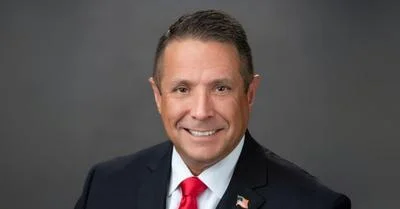Brad Close President | NFIB Hampshire
Brad Close President | NFIB Hampshire
On April 10, the New Hampshire House of Representatives approved its version of the state budget for Fiscal Years 2026 and 2027. The budget totals approximately $15.4 billion, falling over half a billion dollars short of the levels recommended by Governor Ayotte in February.
The budget is divided into two parts: HB 1, which sets expected revenue levels and appropriations, and HB 2, which includes budget-related policies and other priority initiatives for the majority. Governor Ayotte’s plan, along with the House's budget, avoids increasing the state's Business Profits Tax and Business Enterprise Tax.
A significant factor contributing to the gap between the two proposals involves differing expectations for immediate business tax revenues. Following a large increase post-pandemic, business tax collections have declined in recent years. Governor Ayotte anticipates a quick recovery in FY26-27, according to the Governor’s Executive Budget Summary, 2026-27. However, the House forecasts that BET and BPT revenues will fall short by about $300 million compared to the governor's projections, leading to several reductions in funding for agencies, boards, commissions, and vacant employment positions. One notable reduction was a $50 million cut from the University of New Hampshire system’s $1 billion budget.
Differences also exist regarding the state's share from future legalized slot machines, replacing some current historic horse racing-backed gaming terminals. The House increased the state's share from 25% to 30%, whereas the governor suggested 45%.
The budget included several debated items:
The House budget initially featured a cap on local school spending increases to address rising property taxes. Under the proposed cap, spending growth would be limited to a five-year average of the Consumer Price Index-Northeast Region (excluding medical expenses) until 2027, after which it would be capped by a multiyear average of the change in the school district’s enrollment. School boards could override this cap with a two-thirds vote. Although local school funding constitutes a large portion of property tax bills, the cap was removed by a vote of 206 to 165.
The budget also included a move to a defined contribution retirement plan for state employees beginning on or after January 1, 2026. Andrew Cline of the Josiah Bartlett Center stated that shifting new employees to defined contribution plans would mitigate the growth of unfunded pension liabilities, reduce taxpayer risks, and potentially provide better returns for state employees.
Additionally, a bipartisan group restored $14 million in funding for the state’s tourism office for FY26-27 after initial suspension by the House budget committees.
The state budget now proceeds to the New Hampshire Senate, where lawmakers have until June 5 to develop their version. The Senate will have access to more complete first-quarter tax data, particularly BET and BPT revenue, to determine appropriate funding and reductions.
ORGANIZATIONS IN THIS STORY
!RECEIVE ALERTS



 Alerts Sign-up
Alerts Sign-up